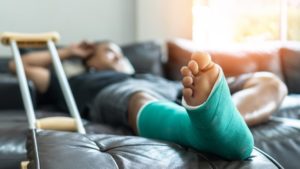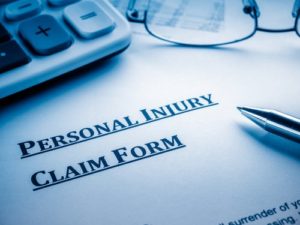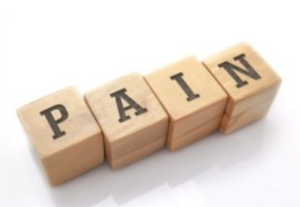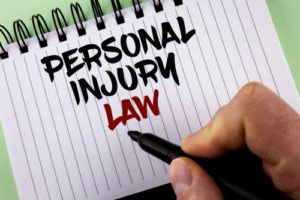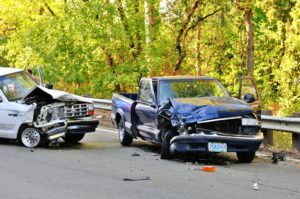
All drivers must share the road and adhere to traffic laws and safety rules. We all have a responsibility to share the roadway and do our best to keep ourselves and other drivers safe.
Some drivers fail to obey the rules when it comes to yielding to other vehicles. Right-of-way is something that should never be assumed or taken. When drivers aggressively assume the right-of-way or fail to understand the right-of-way does not belong to them, car accidents occur.
If you suffered injuries in a failure to yield accident, a Jacksonville failure to yield accident lawyer can help. Medical treatment and vehicle damages can be expensive, and you could be owed compensation from the negligent party who caused your crash. To find out more about how an attorney with Ben Crump Law, PLLC can help, call our offices at (800) 598-7557 today.
Failure to Yield Accidents Commonly Occur at Intersections
Intersections can be dangerous. According to the U.S. Department of Transportation (DOT), about half of all fatal accidents and injury accidents combined happen at intersections. A common cause of intersection accidents is the failure to yield or obey stop signs and traffic lights. The result is often that the vehicle that illegally entered the intersection is struck by the vehicle that had the right-of-way. This can cause injuries to the parties in both cars, but fault for the accident is likely with the driver who failed to yield.
Of course, every driver is obligated to stop at traffic lights and stop signs. Nonetheless, a surprising number of accidents happen because drivers fail to do so. According to the National Highway Traffic Safety Administration (NHTSA), nearly 40 percent of fatal accidents at intersections happen at intersections with stop signs, while nearly 30 percent occur at intersections with traffic lights. If you were hit by a driver who did not obey traffic signals, that driver should pay for the harm they have caused.
There are other situations where traffic laws dictate when drivers must yield:
- Drivers must yield to pedestrians at a crosswalk or to pedestrians using a seeing-eye dog or white cane.
- At a “T” intersection, drivers entering the crossroad must yield to drivers traveling down the road.
- When turning left.
- When entering a highway.
- Vehicles must yield to cars already in the intersection when entering an intersection not regulated by a stoplight or sign.
- When re-entering the road after being parked.
Failure to yield may be the ultimate reason for your accident, but many negligent driving behaviors could have contributed to your crash. The other driver involved may be liable for your injuries if they were engaged in distracted driving, fatigued driving, driving under the influence, or another careless or illegal action.
Sometimes, failure to yield accidents are caused because the intersection is badly designed. If you believe a confusing road design, faulty traffic light, or lack of a stop or yield sign contributed to your accident, speak to a Jacksonville failure to yield accident lawyer. They can determine if the entity in charge of the roadway may bear some legal responsibility for your crash. If brake failure or another defect, either in your vehicle or in the other vehicle involved, contributed to your accident, you could have a case against the vehicle or parts manufacturer.
For a free legal consultation with a failure to yield accidents lawyer serving Jacksonville, call (800) 598-7557
Understanding No-Fault Insurance and Your Legal Rights
One way you can seek compensation in a failure to yield accident case is through your insurance provider. Florida is a no-fault insurance state, so you submit your claims to your insurance provider even if your accident was caused by another driver.
According to Florida Highway Safety and Motor Vehicles (FLHSMV), you must be insured with $10,000 in personal injury protection (PIP), which covers your injuries, and the injuries of most passengers in an accident. You must also have $10,000 in property damage liability, which covers damages to another party’s vehicle in the event the accident is your fault. Bodily injury liability (BIL) insurance, which pays for injury or death you caused to another person, is optional.
Most no-fault insurance states restrict you from seeking compensation for your injuries outside of your PIP. However, in Florida, if your injuries are severe and the other driver was negligent, you can pursue additional damages from the liable party. If the driver carries BIL insurance, you could be awarded a settlement. If not, you may take the driver to civil court.
In an insurance claim, you can receive awards to cover your costs, including your medical bills, property damages, and other out-of-pocket expenses. You cannot be awarded damages for pain and suffering. These awards, also called non-economic damages, can only be sought through a lawsuit. These are awards for things like depression, stress, and no longer being able to enjoy the same activities as before your accident. If your loved one died in a car accident, wrongful death compensation also can be pursued through the court system.
Jacksonville Failure to Yield Accident Lawyer Near Me (800) 598-7557
Speak with an Attorney Before Time Runs Out
A Jacksonville failure to yield accident lawyer can help you get started on your case right away. Florida Statutes § 95.11 gives plaintiffs four years to seek damages for personal injury and two years for wrongful death claims. The clock on the statute of limitations begins at the time you were injured or at the time of your loved one passed.
If you are partially liable for your accident, an attorney can still help you fight for awards from any other party that contributed to your crash. Florida Statutes § 768.81 does not set a threshold that bars you from seeking compensation. You can pursue awards even if your own negligent behavior played a major role in your accident. Any compensation you receive will be reduced by the amount of fault you are assigned.
To learn more about how a lawyer can help you with your claims, contact Ben Crump Law, PLLC at (800) 598-7557. Our team can help you begin your fight for justice with a no-cost consultation.
Call or text (800) 598-7557 or complete a Free Case Evaluation form

